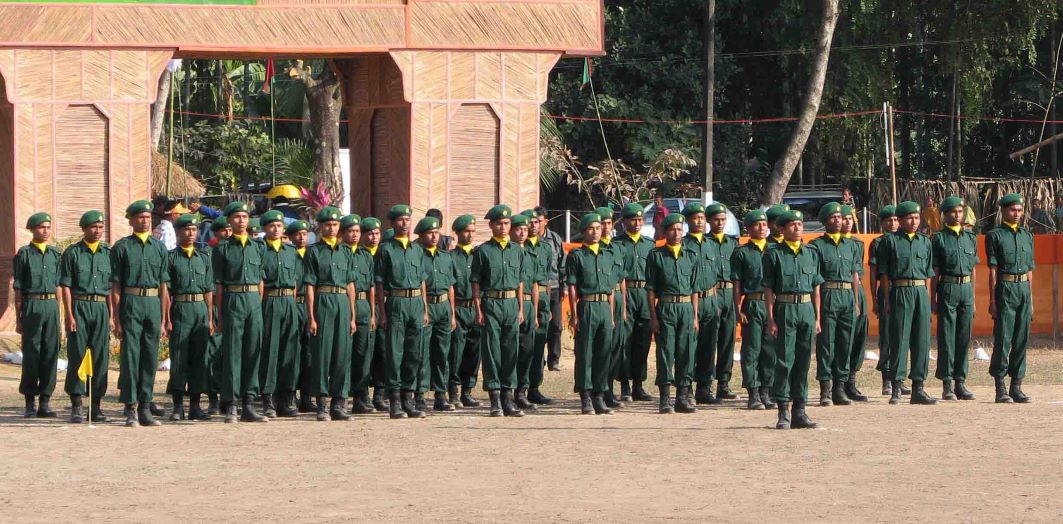A Secret of Revival: Manas National Park
In the 1990s, as the Bodo people in northeast India were demanding for a separate state, rampant poaching of wild animals and felling of trees was taking place in Manas National Park. The UNESCO World Heritage site is known for its rich and pristine biodiversity, and is also home to the Bodo people.
Amid the conflict, forest officials had stopped patrolling inside and outside the park, and poachers and smugglers seized the opportunity to cross the border into India. They gave a little money to people who were economically-disadvantaged and didn’t know better, to convince them to hunt wild animals such as elephants, one-horned rhinos and tigers, and to cut down big trees for timber.
Hundreds of one-horned rhinos vanished from the park. Human habitation encroached a vast swath of the tiger reserve. In those days, there was no trumpeting of elephants, barking of deer, roars of tigers and chirping of birds.
As a result, UNESCO added Manas National Park to their list of World Heritage Sites in danger in 1992. In addition, a change in climate arose in the area. Much of the tiger reserve was hit by drought as the water table shrank. Villages did not get rain for their summer crops. Things became hard for all living beings.
Fortunately, a political solution was reached in 2003 between the India government, the Assam government and the Bodo revolutionary tribes. With peace at least, we local youths, who had witnessed the decline of the environment, immediately ramped up protection activities.
The All Bodo Students’ Union, known as ABSU, was the biggest youth organisation among Bodos. Student leaders were aware of who the poachers and loggers were in their respective villages, and we prepared a list of people who had manufactured guns and who were using guns for hunting. We issued all of them letters and gathered them at the ABSU office for a discussion to motivate them to change.
We told the hunters: “Stop hunting otherwise your children will detest you. You will be accused of destroying this land by your own children. You may be living off killing and selling wild animals now, but when the forest and animals are finished, what will your children live on?”
We shared how the forest is valuable to us in preserving the atmosphere, providing good crop yields, and protecting our health. We also shared that many wild animal species live here and cannot be found elsewhere on the planet, and that we could attract tourists to come see them. Our people could start hospitality businesses to earn livelihoods as guides, drivers, guards and homestay owners.
Within a week, many hard-core poachers surrendered and turned in their handmade guns. As ABSU was no longer a suitable platform for conservation work, we formed an NGO to focus on conservation. That NGO was Manas Maozigendri Ecotourism Society (MMES), under which a separate Conservation Volunteer Force was created with many student activists, ex-poachers, timber loggers and social activists.
In this way, the Maozigendri movement of conservation entered full swing. Hundreds of awareness campaigns were organised in schools, colleges and villages. The majority of local communities supported conservation.
The first batch of poachers to surrender played a key role in identifying and putting us in contact with the remaining poachers. Many poachers did not agree with our appeal to give up their hunting practices, but with persuasion, some eventually did. As for those who continued to resist, we confiscated their guns with the help of border guards and the Indian military.
A programme on anti-poaching training and legal orientation was organised for our conservation volunteers, and exposure trips to other wildlife sanctuaries were arranged, so that they could learn how local stakeholders were enjoying the benefits of ecotourism. Such activities highly motivated them to dedicate their life to conservation.
In this way, we have achieved the objectives of the society, and the former glory of Manas has been revived.





